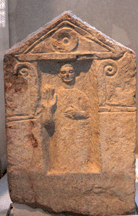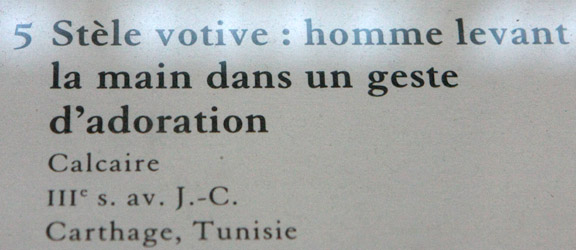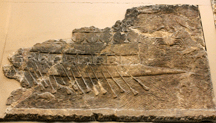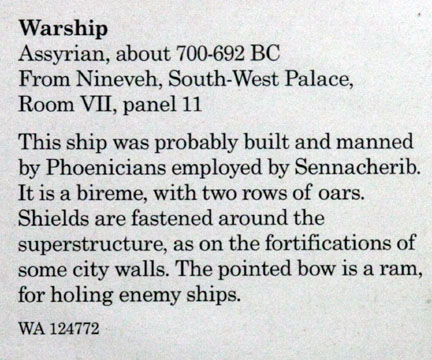b156 (영한)
|
P.1734 – §1 On Friday afternoon, June P.1734 – §2 This June Sabbath day was one of great |
environ, surroundings, 주위 popular favor, 인기 vicinity < vicinitas 근방 en route, 가는 길에 import, 중요성 |
|
1. THE SYRIAN WOMAN – P.1734 P.1734 – §3 There lived near the home of Karuska, |
grievous, 비통한 convulsion, 발작, 경련 |
| P.1734 – §4 Jesus had charged his associates to tell no one of his presence at the home of Karuska, explaining that he desired to have a rest. While they had obeyed their Master’s instructions, the servant of Karuska had gone over to the house of this Syrian woman, Norana, to inform her that Jesus lodged at the home of her mistress and had urged this anxious mother to bring her afflicted daughter for healing. This mother, of course, believed that her child was possessed by a demon, an unclean spirit. |
mistress, 여왕, |
| P.1734 – §5 When Norana arrived with her daughter, the Alpheus twins explained through an interpreter that the Master was resting and could not be disturbed; whereupon Norana replied that she and the child would remain right there until the Master had finished his rest. Peter also endeavored to reason with her and to persuade her to go home. He explained that Jesus was weary with much teaching and healing, and that he had come to Phoenicia for a period of quiet and rest. But it was futile; Norana would not leave. To Peter’s entreaties she replied only: "I will not depart until I have seen your Master. I know he can cast the demon out of my child, and I will not go until the healer has looked upon my daughter." |
reason, 논리적으로 따지다 futile, 헛일 |
|
P.1734 – §6 Then Thomas sought to send the woman P.1735 – §0 torments my child. I have heard of his |
torment, 괴롭히다 |
|
P.1735 – §1 Then came forward Simon Zelotes to remonstrate |
remonstrate, 항의하다 (보여주다) thrust, 찌르다 (깊히 공격하다) |
|
P.1735 – §2 At just this time the little girl was |
|
|
P.1735 – §3 Jesus, who had heard all of this conversation |
|
| P.1735 – §4 The next day, as Jesus taught his apostles, commenting on the cure of the daughter of the Syrian woman, he said: "And so it has been all the way along; you see for yourselves how the gentiles are able to exercise saving faith in the teachings of the gospel of the kingdom of heaven. Verily, verily, I tell you that the Father’s kingdom shall be taken by the gentiles if the children of Abraham are not minded to show faith enough to enter therein." |
advisable, 현명한 |
|
2. TEACHING IN SIDON – P.1735 P.1735 – §5 In entering Sidon, Jesus and his associates |
|
|
P.1735 – §6 As the twenty-four began their labors |
|
|
P.1735 – §7 The apostles and the evangelists were P.1736 – §0 many were added to the kingdom. This |
(be) wont to, 하는 버릇이 있다. 문어 |
|
P.1736 – §1 In many ways these gentile believers |
syro – 시리아 no respector of persons, 사람을 차별하지 않는 분 favoritism, 편애 |
|
P.1736 – §2 Jesus made it clear to the twenty-four |
martyr, 순교자 pass away, 사라지다 |
|
P.1736 – §3 The theme of Jesus’ instructions during |
retrogress, retro = back, backstep. 후퇴하다 content with, 만족한 |
|
P.1736 – §4 Said Jesus: "My disciples must not |
conscience, 양심 |
| P.1736 – §5 Jesus greatly enjoyed the keen sense of humor which these gentiles exhibited. It was the sense of humor displayed by Norana, the Syrian woman, as well as her great and persistent faith, that so touched the Master’s heart and appealed to his mercy. Jesus greatly regretted that his people–the Jews–were so lacking in humor. He once said to Thomas: "My people take themselves too seriously; they are just about devoid of an appreciation of humor. The burdensome religion of the Pharisees could never have had origin among a people with a sense of humor. They also lack consistency; they strain at gnats and swallow camels." |
appeal, 호소하다 바리새인의 규칙은 유머가 없기 때문 consistency, 일관성 |
|
3. THE JOURNEY UP THE COAST – P.1736 P.1736 – §6 On Tuesday, June 28, the Master and his |
|
| P.1737 – §0 While the twenty-four were thus engaged in their work, Jesus left them for a period of three or four days, paying a visit to the coast city of Beirut, where he visited with a Syrian named Malach, who was a believer, and who had been at Bethsaida the year before. |
|
| P.1737 – §1 On Wednesday, July 6, they all returned to Sidon and tarried at the home of Justa until Sunday morning, when they departed for Tyre, going south along the coast by way of Sarepta, arriving at Tyre on Monday, July 11. By this time the apostles and the evangelists were becoming accustomed to working among these so-called gentiles, who were in reality mainly descended from the earlier Canaanite tribes of still earlier Semitic origin. All of these peoples spoke the Greek language. It was a great surprise to the apostles and evangelists to observe the eagerness of these gentiles to hear the gospel and to note the readiness with which many of them believed. |
|
|
4. AT TYRE – P.1737 P.1737 – §2 From July 11 to July 24 they taught in |
Alexander’s mole (둑길, 방파제). In 332 BC, Alexander built two 1km-long causeways (둑길). Timber, stone, rubble 을 사용. massacred 8000 civilians, 30,000 women and children were sold into slavery. 2000Tyrians were crucified. Melkart temple, 페니키아인이 믿는 신. 이 외에도 바알을 믿었다. |
|
P.1737 – §3 Daily, for this period of two weeks, |
멜카트 신전이 기독교 교회로 바뀌었다. |
| P.1737 – §4 Many of the leaders in the manufacture of Tyrian purple, the dye that made Tyre and Sidon famous the world over, and which contributed so much to their world-wide commerce and consequent enrichment, believed in the kingdom. When, shortly thereafter, the supply of the sea animals which were the source of this dye began to diminish, these dye makers went forth in search of new habitats of these shellfish. And thus migrating to the ends of the earth, they carried with them the message of the fatherhood of God and the brotherhood of man–the gospel of the kingdom. |
|
|
5. JESUS’ TEACHING AT TYRE – P.1737 P.1737 – §5 On this Wednesday afternoon, in the course P.1738 – §0 roots of origin and being in the animal |
muck, 거름, 퇴비 slime, 끈적이, 점액,
|
|
P.1738 – §1 It was during this same sermon that Jesus
Let every man make sure that the intellectual and moral foundations of |
carpentry, 목수 일 fruits of the spirit, 영의 열매 if you would, 무엇을 하고 싶다면 assault, 공격 superstructure, 상부 구조 living, 살아 있는 |
|
P.1738 – §2 On the evening of this same day Nathaniel |
|
|
P.1738 – §3 "It is not strange that you ask But you, indeed, |
하나님이 어떤 방향으로 사람을 몰았다고 생각하는 버릇이 생겼다.
|
|
P.1738 – §4 "But let me warn you against the P.1739 – §0 desire through the mere force of the |
expulsive < expel = ex + pellere (drive) |
|
P.1739 – §1 Long into the night the apostles and |
|
| P.1739 – §2 Forceful ambition, intelligent judgment, and seasoned wisdom are the essentials of material success. Leadership is dependent on natural ability, discretion, will power, and determination. Spiritual destiny is dependent on faith, love, and devotion to truth–hunger and thirst for righteousness–the wholehearted desire to find God and to be like him. |
|
| P.1739 – §3 Do not become discouraged by the discovery that you are human. Human nature may tend toward evil, but it is not inherently sinful. Be not downcast by your failure wholly to forget some of your regrettable experiences. The mistakes which you fail to forget in time will be forgotten in eternity. Lighten your burdens of soul by speedily acquiring a long-distance view of your destiny, a universe expansion of your career. |
한 생애에서 잊지 못할 잘못은 영원 속에 파묻혀 잊게 된다. 장기 관점 = 영원의 관점 |
| P.1739 – §4 Make not the mistake of estimating the soul’s worth by the imperfections of the mind or by the appetites of the body. Judge not the soul nor evaluate its destiny by the standard of a single unfortunate human episode. Your spiritual destiny is conditioned only by your spiritual longings and purposes. |
운명은 영적 목표와 갈망에 조건을 받는다 |
| P.1739 – §5 Religion is the exclusively spiritual experience of the evolving immortal soul of the God-knowing man, but moral power and spiritual energy are mighty forces which may be utilized in dealing with difficult social situations and in solving intricate economic problems. These moral and spiritual endowments make all levels of human living richer and more meaningful. |
|
| P.1739 – §6 You are destined to live a narrow and mean life if you learn to love only those who love you. Human love may indeed be reciprocal, but divine love is outgoing in all its satisfaction-seeking. The less of love in any creature’s nature, the greater the love need, and the more does divine love seek to satisfy such need. Love is never self-seeking, and it cannot be self-bestowed. Divine love cannot be self-contained; it must be unselfishly bestowed. |
mean life, 평범한, 초라한 reciprocal, 주고 받는 |
| P.1739 – §7 Kingdom believers should possess an implicit faith, a whole-souled belief, in the certain triumph of righteousness. Kingdom builders must be undoubting of the truth of the gospel of eternal salvation. Believers must increasingly learn how to step aside from the rush of life–escape the harassments of material existence–while they refresh the soul, inspire the mind, and renew the spirit by worshipful communion. |
implicit, 암시된, 절대적 |
|
P.1739 – §8 God-knowing individuals are not discouraged P.1740 – §0 purely material upheavals; spirit livers |
immune < in + munis (ready for public service), 면제된, 면역 |
|
P.1740 – §1 Spiritual living mightily increases true |
self respect, 자존심 self admiration, 자화 자찬 이웃을 사랑하는 정도가 자존심의 한계이다. |
| P.1740 – §2 As the days pass, every true believer becomes more skillful in alluring his fellows into the love of eternal truth. Are you more resourceful in revealing goodness to humanity today than you were yesterday? Are you a better righteousness recommender this year than you were last year? Are you becoming increasingly artistic in your technique of leading hungry souls into the spiritual kingdom? |
|
| P.1740 – §3 Are your ideals sufficiently high to insure your eternal salvation while your ideas are so practical as to render you a useful citizen to function on earth in association with your mortal fellows? In the spirit, your citizenship is in heaven; in the flesh, you are still citizens of the earth kingdoms. Render to the Caesars the things which are material and to God those which are spiritual. |
in the spirit, 정신을 따라, 기백을 살리면 |
| P.1740 – §4 The measure of the spiritual capacity of the evolving soul is your faith in truth and your love for man, but the measure of your human strength of character is your ability to resist the holding of grudges and your capacity to withstand brooding in the face of deep sorrow. Defeat is the true mirror in which you may honestly view your real self. |
hold grudges, 불평을 품다 brood over, 골똘이 생각하다, 생각을 품다 |
| P.1740 – §5 As you grow older in years and more experienced in the affairs of the kingdom, are you becoming more tactful in dealing with troublesome mortals and more tolerant in living with stubborn associates? Tact is the fulcrum of social leverage, and tolerance is the earmark of a great soul. If you possess these rare and charming gifts, as the days pass you will become more alert and expert in your worthy efforts to avoid all unnecessary social misunderstandings. Such wise souls are able to avoid much of the trouble which is certain to be the portion of all who suffer from lack of emotional adjustment, those who refuse to grow up, and those who refuse to grow old gracefully. |
refuse to grow up, 나이가 들어도 성숙하지 않은 자, regardless of your deserts (= merits in Italian, German), (사막이 아니라) 공적에 상관 없이 Latin root: deservire (deserve, serve well) "Just deserts" (마땅한 인정) refers what someone deservs, whether reward or punishment. |
| P.1740 – §6 Avoid dishonesty and unfairness in all your efforts to preach truth and proclaim the gospel. Seek no unearned recognition and crave no undeserved sympathy. Love, freely receive from both divine and human sources regardless of your deserts, and love freely in return. But in all other things related to honor and adulation seek only that which honestly belongs to you. |
|
| P.1740 – §7 The God-conscious mortal is certain of salvation; he is unafraid of life; he is honest and consistent. He knows how bravely to endure unavoidable suffering; he is uncomplaining when faced by inescapable hardship. |
|
| P.1740 – §8 The true believer does not grow weary in well-doing just because he is thwarted. Difficulty whets the ardor of the truth lover, while obstacles only challenge the exertions of the undaunted kingdom builder. |
grow weary, 지치다 thwart, 방해하다, 좌절시키다. |
|
P.1740 – §9 And many other things Jesus taught them P.1740 – §10 The day before Jesus left Tyre for the P.1741 – §0 go back by a route different from that |
|
|
6. THE RETURN FROM PHOENICIA – P.1741
P.1741 – §1 About noon on Sunday, July 24, Jesus |
|
| P.1741 – §2 On Tuesday they left Ptolemais, going east inland to near Jotapata by way of the Tiberias road. Wednesday they stopped at Jotapata and instructed the believers further in the things of the kingdom. Thursday they left Jotapata, going north on the Nazareth-Mount Lebanon trail to the village of Zebulun, by way of Ramah. They held meetings at Ramah on Friday and remained over the Sabbath. They reached Zebulun on Sunday, the 31st, holding a meeting that evening and departing the next morning. |
inland, 내륙으로 |
| P.1741 – §3 Leaving Zebulun, they journeyed over to the junction with the Magdala-Sidon road near Gischala, and thence they made their way to Gennesaret on the western shores of the lake of Galilee, south of Capernaum, where they had appointed to meet with David Zebedee, and where they intended to take counsel as to the next move to be made in the work of preaching the gospel of the kingdom. |
|
|
P.1741 – §4 During a brief conference with David |
|
|
P.1741 – §5 While Jesus was absent from Capernaum |
reckon, 간주하다, 계산하다 subside, 가라앉다 tried and true survivors, 시련을 겪고 살아남은 자. sift, 체질해서 거르다. |
| P.1741 – §6 Philip, the brother of Herod, had become a halfhearted believer in Jesus and sent word that the Master was free to live and work in his domains. |
|
| P.1741 – §7 The mandate to close the synagogues of all Jewry to the teachings of Jesus and all his followers had worked adversely upon the scribes and Pharisees. Immediately upon Jesus’ removing himself as an object of controversy, there occurred a reaction among the entire Jewish people; there was general resentment against the Pharisees and the Sanhedrin leaders at Jerusalem. Many of the rulers of the synagogues began surreptitiously to open their synagogues to Abner and his associates, claiming that these teachers were followers of John and not disciples of Jesus. |
mandate, 명령, = manu + dare surreptitious < sur (secretly) + rapere (seize) |
|
P.1741 – §8 Even Herod Antipas experienced a change P.1742 – §0 word to him that, while he had signed |
a change of heart, 마음이 변하다 warrant, (체포) 영장 ruling, 판결문 |
|
P.1742 – §1 And that was the situation about the |
issues of ballt, 쟁점 deplete, 고갈시키다 |
|
P.1742 – §2 The issues of battle are clearly drawn |
|





